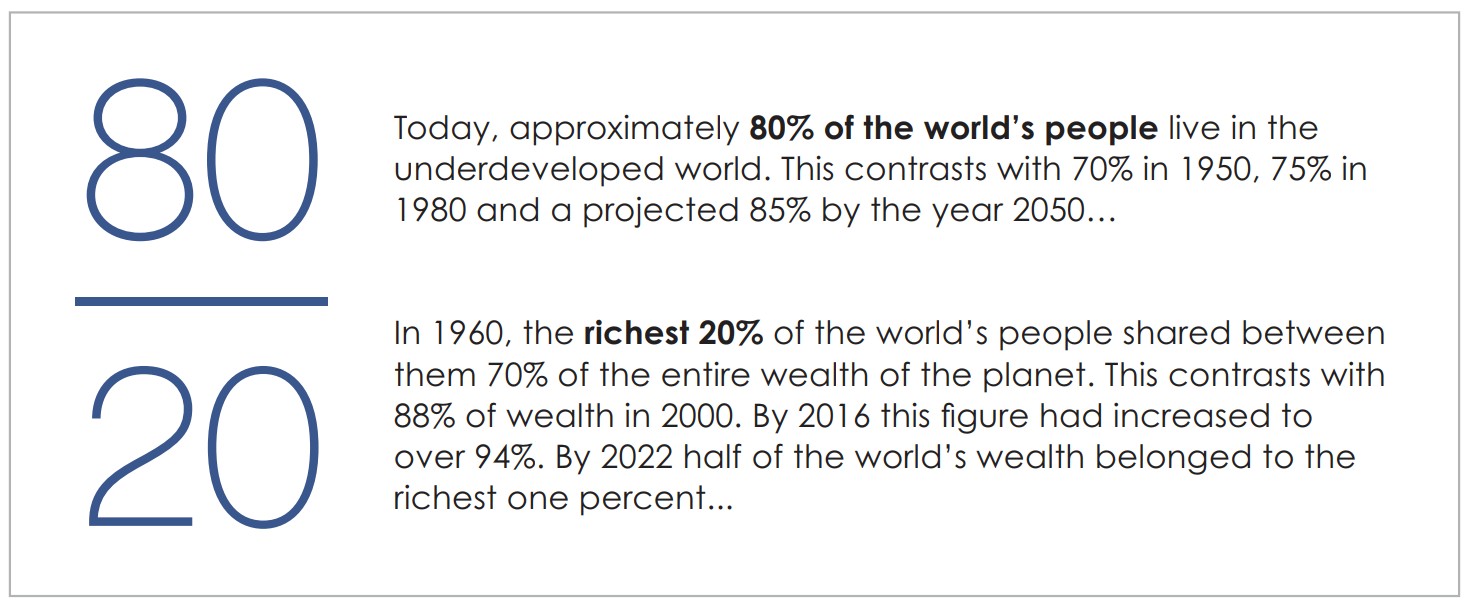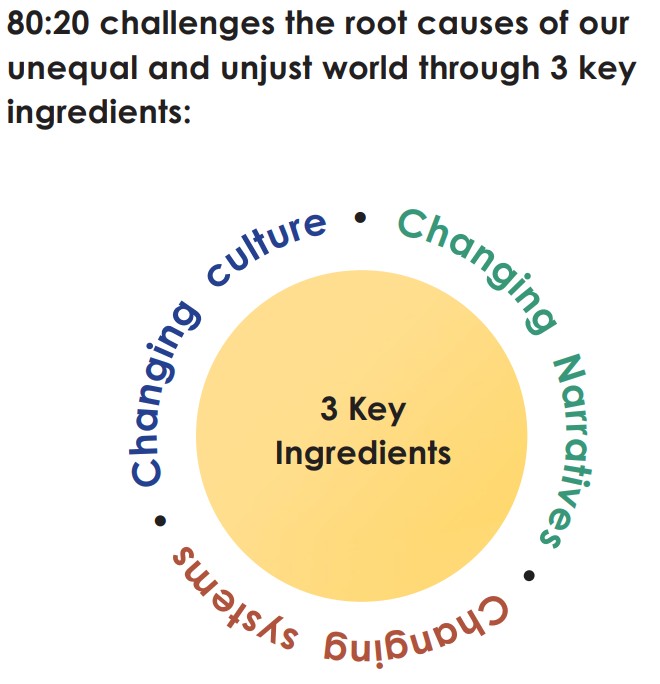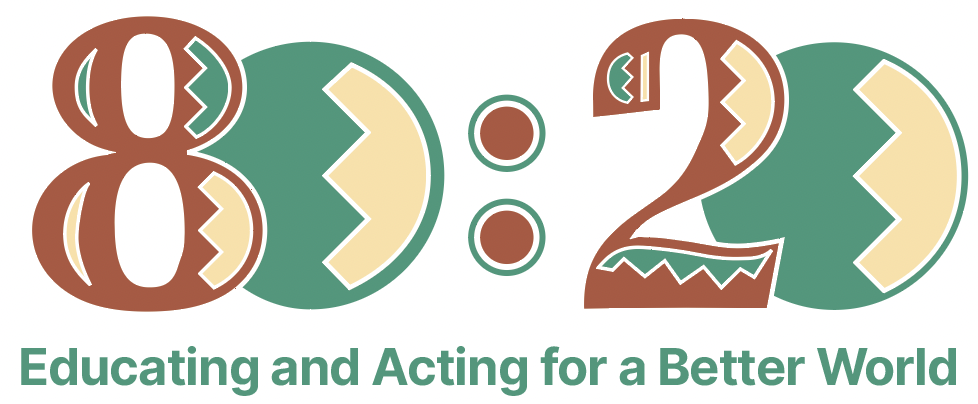What makes us different?

80:20 has a priority concern with what it has described and articulated as the ‘80:20 equation’ – the series of primary unjust relationships that currently exist between the worlds of the rich and the poor, especially as witnessed in developing countries. As such, the organisation views issues such as hunger, poverty, climate change and inequality as matters of injustice and structural inequality, rather than simply as issues of charity and welfare.
How we turn these unjust relationships upside down and critically engage with them –challenging dominant stories, perspectives, systems and culture – is at the centre of 80:20’s approach.
80:20 uses the phrase ‘underdeveloped world’ informed by Walter Rodney’s book, How Europe Underdeveloped Africa, which details the impact of slavery and colonialism on the history of international capitalism.


Changing narratives: Perspectives or interpretations of events, people, and ideas evolve and change over time. These narratives shape how we understand our world around us and as circumstances, values or new information emerge, the dominant story or viewpoint can shift. By shifting the manner in which we engage with development and global issues, in order to be more inclusive, accurate and empowering, we have the power to effect change.
Changing systems: When a system
changes, the rules, processes or structures that make it function are modified to improve outcomes, adapt to new situations and solve problems.
Changing systems involves modifying how things work on a broader scale to make them more effective, fairer, or better suited to new challenges.
Through advocating for policy changes and reform, root causes of inequality can be addressed.
Changing culture: The way people think, act and live as a group evolves over time, often driven by new ideas, technologies and social movements. By influencing public attitudes and cultural perceptions we can foster a more globally informed and active communities.
In doing this, 80:20 aligns its efforts towards deeper, sustainable impacts on education work and social justice both locally and globally.
Our activities will embed a number of approaches in our work
Human rights education is central to how we work and is defined as building a universal culture of human rights where human rights are learned, lived and ‘acted’ for in practice. We believe that when people learn about human rights, they can use them and defend them.
Education for transformation – access to education and lifelong learning is a human right for all. Critically engaging with the United Nations Sustainable Development Goals should support sustainable development and transformative education to empower individuals and communities to be active agents in the pursuit of social, economic and environmental justice.
Embedding feminist approaches in our work – An intersectional feminism is a lens that reveals how different forms of inequality intersect and exacerbate each other.
Intersectional feminist approaches to education create a learning environment that respects and values the experiences and perspectives of all learners, challenges traditional power structures, and strives for equality and social justice.
Solidarity with the Global South – educator Paulo Freire reminds us that ‘Washing one’s hands of the conflict between the powerful and the powerless means to side with the powerful, not to be neutral.’
As historical inequalities are reinforced or persist in the world today, Global-Citizenship Education is not just ‘about’ solidarity, it is ‘doing’ solidarity work; 80:20 promotes international perspectives, particularly from the ‘developing world’ and in antiracism work.
Global justice, climate justice and peace education – understanding that global issues have layers of injustice and oppression that overlap. (Tackling complexity is important!)
Lifelong literacy matters – daring to teach and daring to learn about theworld begins with understanding it. Supporting literacy work is to recognise that everyone is on a learning journey.
We strive to support teachers and learners from the starters to the seasoned sustainability advocates.
Human development – putting the improvement of people’s lives, dignity and freedoms at the centre of ideas of ‘development’. Beyond every statistic is a person and a story that matters.
Educational activism – initiatives that put practice and participation of learners and educators at the centre.
Adopt an approach that is actively engaged in the processes of change-making and uses education methods that contribute towards justice oriented social change.
- For more, take a look at 80:20’s strategic plan 2024-2028
